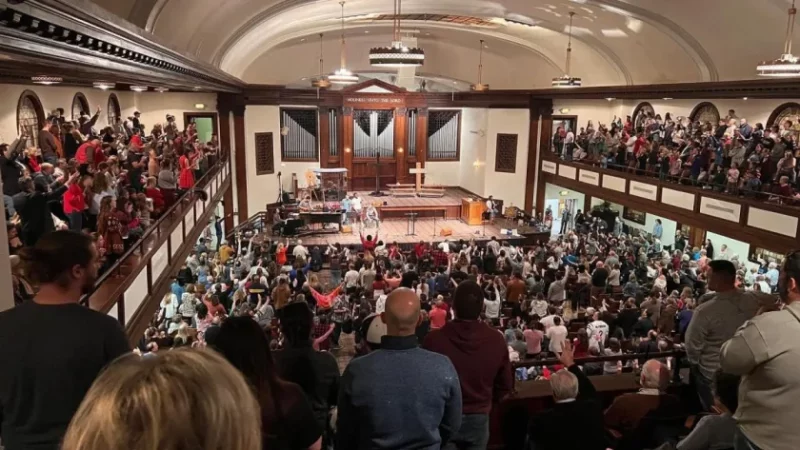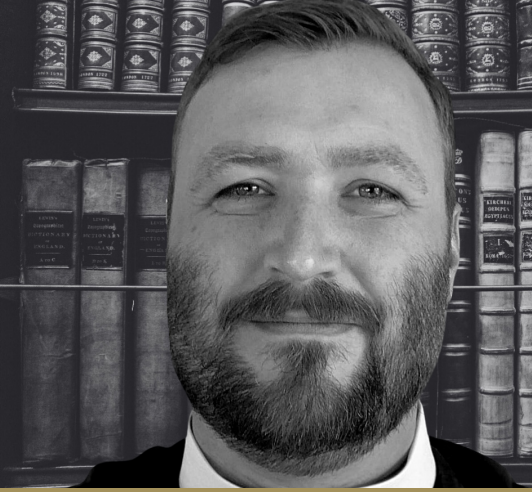Charles McIlvaine was born in 1799. He was an Evangelical Episcopalian who was ordained in 1820, and served as Bishop of Ohio from 1832-1873. His ministry and episcopacy overlapped with the Second Great Awakening (~1795—~1835). In fact, he himself oversaw an awakening/revival among the cadets during his time as chaplain at West Point (1825-1827).
In light of some of the awakenings/revivals that seem to be occurring throughout the world right now, the following summary of McIlvaine’s episcopal and pastoral wisdom concerning how to respond to such events is helpful. This selection is taken from Thomas Garrett Isham’s biography, McIlvaine, A Born Again Episcopalian: The Evangelical Witness of Charles Pettit McIlvaine.
McIlvaine stated his revival principles in a letter to one of his parishes in his second year as bishop of Ohio. The parish, which had never enjoyed the regular services of a pastor, was clearly in need of wise and timely advice, as the teeming energies stirred by revival were producing startling results both favorable and unfavorable. With regard to the first, McIlvaine rejoiced that a “great increase of attention to the salvation of the soul” had appeared in the parish, that many members had taken an interest in prayer, and that some professed “to have been recently led to Christ, and to have obtained peace through the blood of His Cross.” He expressed hope that serious inquiry into “the way of salvation” had been aroused, that members of the parish were searching the Bible, praying diligently, renouncing sin, pursuing holiness, loving one another, and seeking “to dwell together in the unity of the spirit and the bond of peace.” If all these things were true, he wrote, “Indeed I do rejoice. It is the work of the Spirit.” Yet he let it be known that other spirits could be at work also. Revival, he held, was a two-edged sword. The most prosperous season in a church could become the most dangerous: “The mount is the place to become giddy.” He expressed his customary caution in regard to revival novelties that should have no place in the church. “Beware of all efforts to kindle excitement,” he warned. “Be animated, be diligent, be filled with the spirit of prayer, but be sober-minded. Sobriety of spirit and humility of mind are inseparable.” With [Charles] Finney and other revival specialists in mind, he came down hard on deliberate efforts to promote emotional excess. “Let all noise and all endeavors to promote animal feeling be shunned,” he said. “You can no more advance the growth of religion in the soul by excitement, than you can promote health in the body by throwing it into fever.” Religion is principle, he admonished the parish, and as such can only be promoted by truth, prayer, and doing one’s duty.
McIlvaine also reminded the parish that the regular services of the church remained necessary–indeed, more necessary than ever–during a time of revival. Owing to the excitement generated, he warned, participants might come to believe that regular worship be set aside in favor of irregular forms of a more stimulating character. “On the contrary,” he advised, “hold on to those holy and spiritual services as your anchor, to keep you steadfast under the irregular influences to which, in…a revival of religion, all are liable.” At no time, he said, does a church need a liturgy–a prescribed form of worship such as that found in the Book of Common Prayer–more than during a revival. For liturgy he said, served “against the disposition to extravagance and novelty, by which so many revivals have been deformed.” Moreover, liturgy was immune “to temporary prejudice; preferring to be adapted to the wants of all centuries and all people, rather than change with the times and vary with the tastes of the day.” In it, he declared, the Word of God was present “in purity, in fitness, and in power.
Reprinted with permission from pages 120-122 of Thomas Garrett Isham’s biography of McIlvaine, A Born Again Episcopalian: The Evangelical Witness of Charles Pettit McIlvaine. To order a copy of Isham’s book, click here.
Editor’s note: Click here to view an interview of Thomas Isham by Zac Neubauer.


